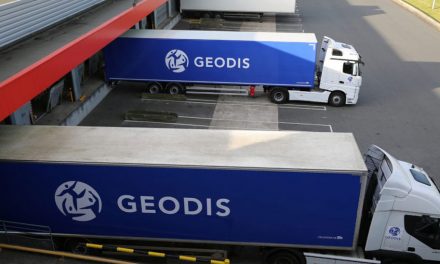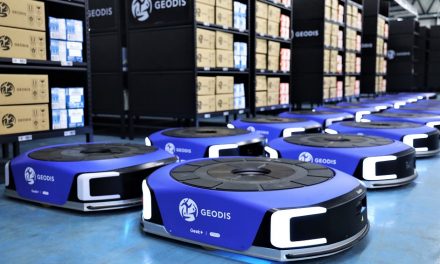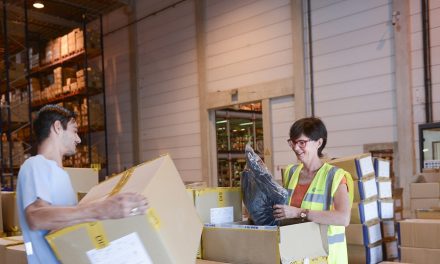
Geodis looks to value-added logistics
Outsourcing, globalisation and the increased intermeshing of participants in the delivery and supply chains are changing and extending the meaning of the term <
Wide range of roles
The French logistics services provider Geodis, headquartered in Paris, came to precisely this conclusion and decided in 1998 to develop a premium range of services in warehousing, packaging, distribution, reverse logistics and spare parts logistics of high-tech consumer goods, especially IT equipment. The package of services was offered on the national and European level to a wide range of potential customers.
In the space of only three years. from initially relatively modest beginnings, the project has developed so that its scope has now far outgrown the original parameters with the result that this range of ser
vices can he performed for all suppliers of this or a comparable product range. <
<
deleted. This is a mandatory provision of the German Data Protection Act. Each component is registered in a database, so that it is available for distribution within a Europe-wide spares supply network.
<
Nowadays computers are assembled from prefabricated modules. This simplifies both repair and dismantling. <
Synergies save costs
IBM was the first hut not the last.Geodis Mainz was able to gain other high-tech businesses as customers. "As part of our general entrepreneurial activities, we develop local and global networks. We plan, configure and deliver the hardware and individually furnish the computers with software. After delivery, we install the systems and train/assist the personnel>>. added Schmidt.
But that is by no means the end of the story ‘
High customer benefit
All this is achieved by Schmidt and project manager Josef Ziclinski in a single shift operation with at most 100 staff. Depending on the time of year, the core team is supplemented by part timers. The setup is highly advantageous from the customer’s viewpoint for three reasons: First, the outsourcing partner has a Europewide presence as a specialist provider of transport services. Geodis uses a common system for France, the Iberian peninsula and the Benelux states. From Milan, the Group covers Italy, Greece and soon the Balkan states, too.
Second, enormous economies of scale are generated as Geodis gains other dustoniers from the IT industry, not to mention the associated synergy effects. Third, understandably enough, nobody likes the idea of their competitors looking too closely at their products, and therefore equipment makers are reluctant to outsource disposal to third parties. No such concerns are necessary with Geodis, because it is unimaginable that the service provider would start to make its own PCs or Unix computers.
Look into the future
How will things develop in industrial value-added logistics, as Schmidt calls it? <
ranging product roll-outs for key accounts. This would embrace such tasks as product customisation before delivery (printers, RAM modules, graphic cards, network or system configuration). <












